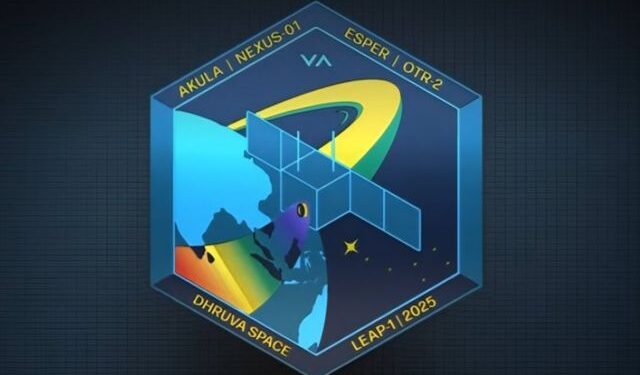Hyderabad-based space tech firm Dhruva Space is set to launch its first full-stack commercial satellite mission, LEAP-1, aboard SpaceX’s Falcon-9 rocket in the third quarter of 2025.
The development signifies a major shift from experimental technology demonstrations to globally competitive customer-driven satellite deployments.
LEAP-1 is powered by Dhruva’s indigenously developed P-30 satellite platform, which was successfully space-qualified on ISRO’s PSLV-C58 during the LEAP-TD mission in January 2024. The mission features two high-value payloads: Akula Tech’s Nexus-01, which includes an advanced artificial intelligence module, and Esper Satellites’ OTR-2 hyperspectral imager.
The AI module promises on-orbit intelligence with capabilities for real-time onboard data processing and machine learning model re-training, enabling dynamic applications like fire detection and spectral analysis. Meanwhile, the hyperspectral imager will offer spectrally rich Earth observation data via Esper’s EarthTones API, targeting sectors including defence, agriculture, mining, disaster response, and climate monitoring.
To ensure uninterrupted mission operations, Dhruva Space will deploy its Ground Station-as-a-Service (GSaaS) and proprietary Integrated Space Operations & Command Suite (ISOCS), offering efficient real-time management and data downlinking solutions.
The mission patch reflects a tri-national synergy, incorporating design elements symbolising AI, Earth imaging, and space legacy from India, Australia, and the United States. Dhruva Space CEO Sanjay Nekkanti lauded the mission as a landmark in India’s transition to hosting commercial payloads and fostering global partnerships.
LEAP-1 not only positions Dhruva Space as a serious player in international space operations but also highlights the growing relevance of Indian innovation in satellite technology and commercial space services.




























